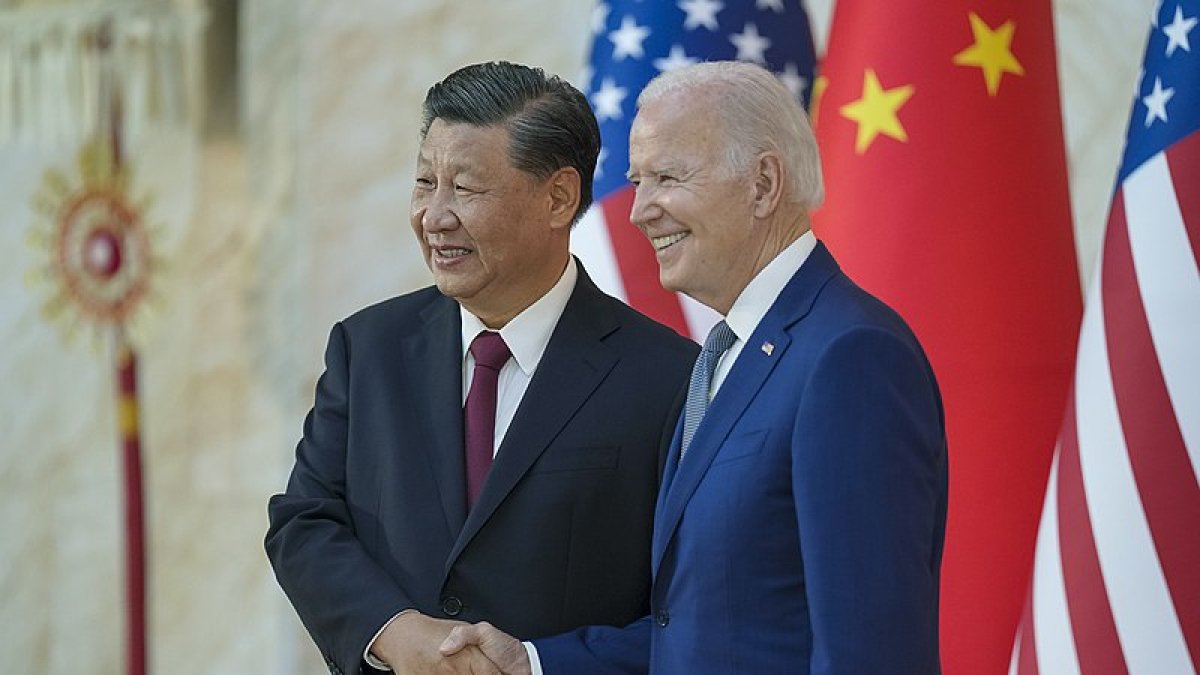U.S. federal agency may be helping China win technology race
So says Brian J. Cavanaugh, who most recently served as special assistant to the president and senior director for resilience at the National Security Council in the White House.

Xi Jinping- Joe Biden/Wikimedia Commons
Brian J. Cavanaugh currently serves as senior vice president of American Global Strategies LLC and had a recent stint as special assistant to the president and senior director for resilience at the National Security Council in the White House. With this experience and inside knowledge, he asserted that a US federal agency could be helping China gain the upper hand in the technology race.
In an opinion column published in The Hill, the expert took direct aim at the Federal Trade Commission (FTC), currently headed by Lina Khan. According to him, the agency embarked on a “multi-continental crusade” against US technology giants in the name of antitrust policy.
Specifically, Khan announced in March the dispatch of officials to Europe to implement and enforce the European Union’s Digital Markets Act (DMA). What is inside this legislation? Aiming to curb the dominance of so-called Big Tech, it designates a class of companies as “technology gatekeepers,” who must submit to additional rules from which other companies are exempt in order to compete on a level playing field.
“The EU’s goal is to give its own companies an advantage over their larger American counterparts, But in reality, it will only undermine innovation while increasing dependency on technology from China,” Cavanaugh said of the matter.
The law requires these (primarily American) gatekeepers to go as far as to share data with rival companies and simultaneously limits them to using their data collection capabilities for other services. Those not complying with these conditions will be sanctioned with severe fines by the European Union.
The DMA also entails extra costs for the guardians, which could reach $ US 50 billion. According to Cavanaugh, “These costs will be passed on to consumers one way or another. American tech companies designated as gatekeepers will likely either have to create new services that meet the EU’s compliance rules or pull their services out of European digital markets entirely.”
“Neither of these scenarios will benefit American — or European — consumers, who greatly value the security and services offered by US platforms,” he added.
Even voices within the Biden Administration raised alarms about the consequences for the United States. Gina Raimondo, Secretary of Commerce, expressed that the DMA “will disproportionately impact U.S.-based tech firms and their ability to adequately serve EU customers and uphold security and privacy standards.”
How does it benefit China?
According to the expert, the legislation will not achieve its goal of leveling competition and will instead “enable Chinese tech firms — directed by the Chinese Communist Party — to catch up and dominate digital markets.”
“In fact, this is the goal of China’s trillion-dollar investments in advanced technology, to make the world increasingly dependent on its technology for political and economic leverage,” he added.
In addition, he stressed that the data consumers send to Beijing is and will continue to be at the service of the CCP. At the same time, he emphasized that Europe continues to incorporate low-cost Chinese technology, which the government subsidizes in its critical infrastructure, thus making it a danger to national security.
“By aiding other nations in hobbling American tech leadership, Chairwoman Khan is jeopardizing America’s ability to remain competitive while handing an advantage to an authoritarian competitor that believes technology’s highest use should be for censorship and control, rather than unleashing human potential and safeguarding free expression. It matters greatly which country — and which set of values — builds the future,” Cavanaugh concluded.

























